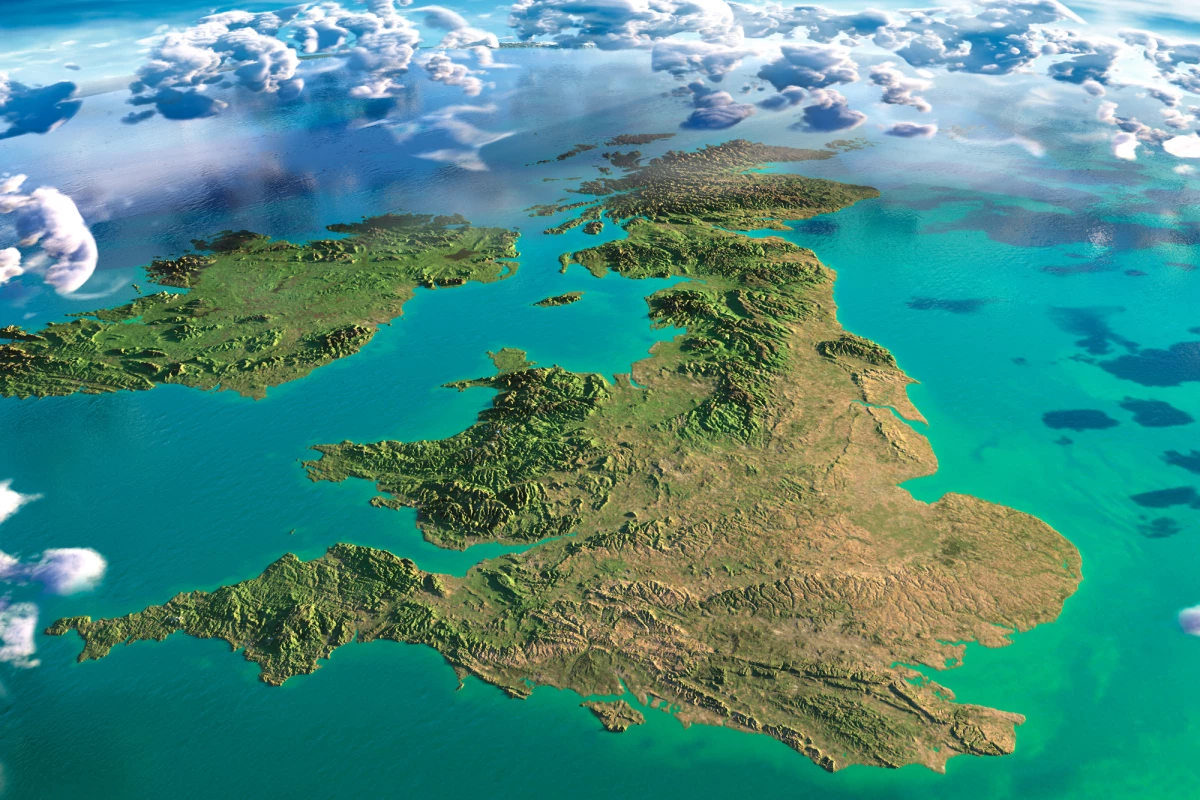The UK government has announced a legally binding commitment to hit a 78 percent emissions reduction target by 2035, as compared to 1990 levels, on the way to net zero emissions by 2050. For the first time, this target includes aviation and shipping.
This is the sixth Carbon Budget for the UK, which has already beaten its first two Carbon Budgets and is on track to beat its third as well for 2022. The UK's carbon emissions peaked at around 900 megatonnes per year in 1991, and the 2022 figure is on pace to be below 500 Mt, representing around a 45 percent emissions reduction achievement over the last 22 years.
The pace will need to quicken over the next 15 years, and the sixth budget is particularly ambitious, aiming to halve annual emissions rates between 2030 and 2035. And where previous budgets have kept international aviation and shipping aside, as the UN doesn't attribute them to a particular country, the new targets will see the UK taking responsibility for its share, bringing them out of a separate "headroom" category and into the budget itself.

The target adopts the recommendation of the independent Climate Change Committee, which proposes a range of measures and policy changes to nail the 78 percent target. These include:
- All new cars, vans and boilers to be low-carbon and largely electric by the early 2030s
- All new trucks to be low-carbon by 2040
- Widespread shifting of industrial energy use to renewable electricity, with carbon capture and sequestration where this is impractical
- A zero-carbon electricity grid by 2035, with offshore wind as the backbone of supply and greatly increased generation capacity to cope with an energy transition toward electricity
- Low-carbon hydrogen to scale up as a shipping and transport fuel, as well as for industrial use and potentially a replacement for natural gas in heating some buildings
- Improved insulation to cut building energy losses
- Dietary changes reducing high-carbon meat and dairy consumption by 20% by 2030
- Reduction in car miles travelled and a slowing down of growth in demand for flights
- 460,000 hectares of new mixed woodland to be planted by 2035, helping raise woodland coverage from 13% of UK land today to 15% by 2035
- 260,000 hectares of farmland to be shifted to production of energy crops
- Peatlands to be restored and sustainably managed
The new target will go before parliament soon, and will be enshrined into law by the end of June.
"The UK’s sixth Carbon Budget is the product of the most comprehensive examination ever undertaken of the path to a fully decarbonised economy," said Climate Change Committee chairman Lord Deben. "I am delighted that the government has accepted my Committee’s recommendations in full."
"The UK is leading the world in tackling climate change," said Business and Energy Secretary Kwasi Kwarteng, "and today’s announcement means our low carbon future is now in sight. The targets we’ve set ourselves in the sixth Carbon Budget will see us go further and faster than any other major economy to achieve a completely carbon neutral future. This latest target shows the world that the UK is serious about protecting the health of our planet, while also seizing the new economic opportunities it will bring and capitalising on green technologies ... as we build back greener from the pandemic, we lead the world towards a cleaner, more prosperous future for this generation and those to come."
This news comes as UK Prime Minister Boris Johnson prepares to address the opening session of the US Leaders' Summit on Climate, hosted by President Biden on Earth Day, April 22.
Source: UK Government






